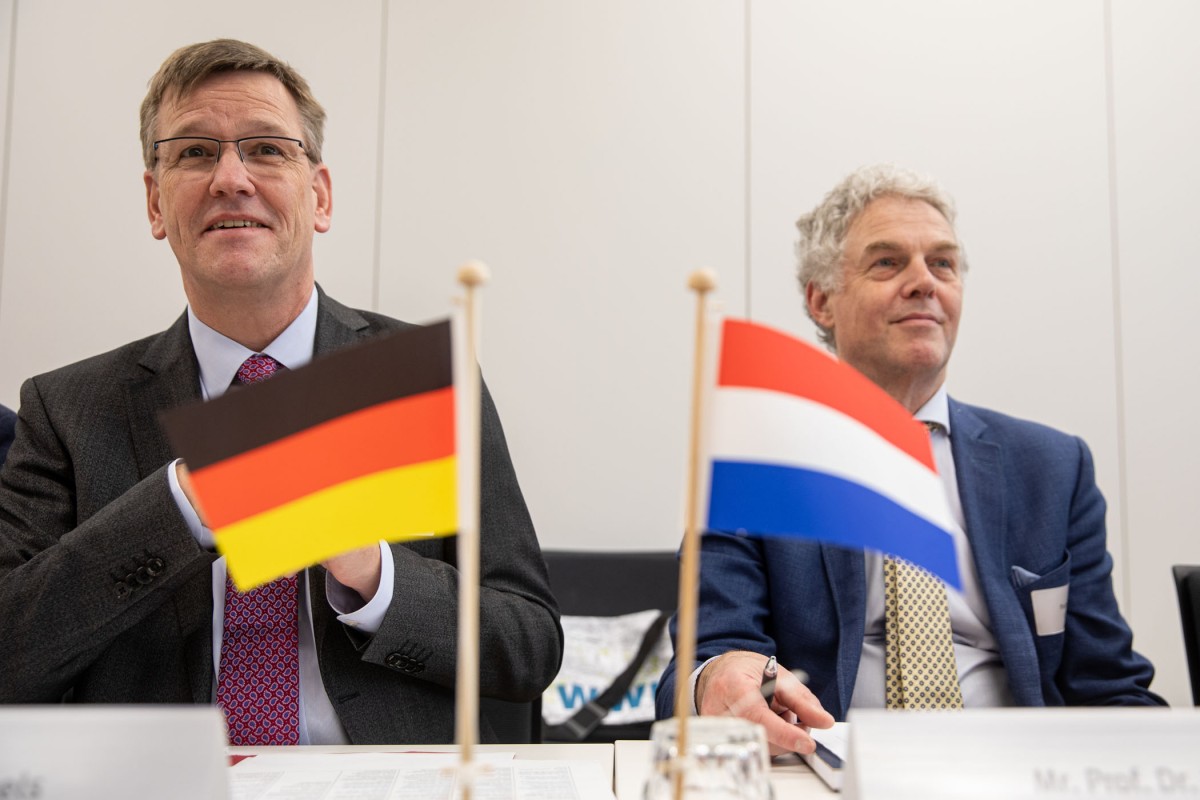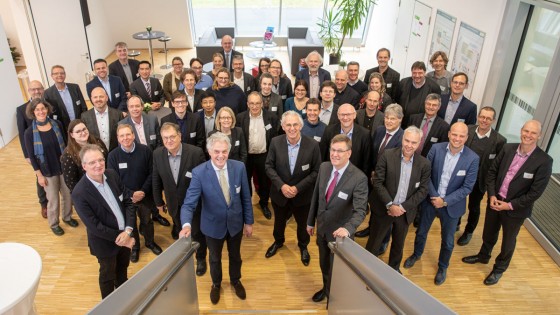
"We know that we match very well"
The universities in Twente and Münster have maintained a close partnership for many years. Both universities work together in numerous areas. In addition to research cooperation and joint study programs, both universities also offer regular exchanges for students and staff. The two university managements are now going one step further: they want to deepen their strategic partnership and identify further cooperation and strengthen the existing research alliances.
In the coming weeks, the Communication and Public Relations Office of the University of Münster will publish a three-part series highlights special features of this cooperation and provide insights into the areas of research, teaching and transfer activities.
Part I: Strategy meeting of the universities of Münster and Twente.
Part II: Start-up culture and entrepreneurship
Part III: Research cooperation and “collaboration grants”
After some six hours of exchanging experiences, it is time to sum up. Since the early morning, the two rectors of the Universities of Münster and Twente, as well as numerous deans and professors, have been discussing existing and possible new cooperation in the "Center for Soft Nanoscience" at Münster University. What has been successful so far - what less? In which research fields are new potentials for cooperation emerging? At the end of the debate, there are three main results: The partnership between the two universities, which has existed for more than 40 years and is only 70 kilometers apart, is firstly deeply rooted at many levels - the 100 jointly published papers by scientist from Münster and Twente together is one exmaple for that. Second, during the six hours of discussion, numerous new cooperation ideas emerged in the six working groups. The Dutch Rector Prof Thom Palstra sums up the third point on behalf of Münster University's Rector Prof Johannes Wessels: "We have decided to define an joint program for the future which is widely visible – energy research".

Around 30 guests had come to Münster to concretize the planned intensification of the relationship with about the same number of colleagues from the University of Münster. "We know that we match very well – the more technically oriented University of Twente and we as a university that is strong in basic research and also has a university hospital," emphasized Johannes Wessels. Now we have to identify new potential fields of research and cooperation and make them as visible as possible at both universities. Johannes Wessels recommended concentrating primarily on "regional challenges" – this would be the only way for the respective state or provincial governments to have good reasons to participate financially in individual projects.
The hosts and their guests explored the variety of possibilities in six groups divided into scientific fields. Symposia, guest lectureships, student and data exchange, cooperation between medical technicians and researchers – the quintessence was almost identical: "We see great potential – we will network even more closely than before".
Looking back. It was Friday, 11 May 1979, when the former Münster University's rector Prof Werner Müller-Warmuth and the head of the Twente board of directors, A. Hooites Meursing, announced in writing in the Chamber of the Senate their intention to intensify student exchanges, to enable scientists to spend time on joint research and to recognize each other's degrees. However, this is primarily in biomedicine and with a view to possible cooperation, for example in education and economics. This was the beginning of a partnership, which gained substance every year and led to a large number of joint projects - and just as many friendships.
A special format already gains significantly in importance - the "collaboration grants". This is an internal start-up financing of 80,000 euros - 50 percent each from Twente and Münster - for joint research projects that are promising for future third-party funding. In the first round, three projects from the fields of medical imaging, nanotechnology and battery research were selected – the second call already received 19 applications.



